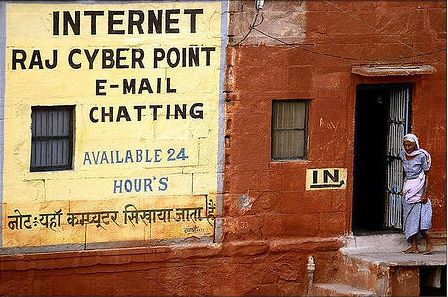A major impact of the Fourth Revolution is that ubiquitous cheap long distance communication is accessible worldwide. That means, also in developing countries.
It is so important for people to be able to communicate that in a scarce budget, people will often put a mobile phone or internet as a first priority expense. Every day in Africa, India and other places of the world, communication capability is more important in people’s life. The famous Grameen Bank of Muhammad Yunus developed micro-credit by lending money to women entrepreneurs so that they could buy mobile phone and sell communication time!

There has been a lot of comments on the post on the renewal of the elites. The daily news show how pervasive the Fourth Revolution can be in developing countries, making coordination of demonstrations and public action in a way that was before reserved to countries with highly developed infrastructure.
So what? The developing world is now connected to the world. Communication and broadcasting is not reserved to rich countries.
And that’s a fundamental change. Sure, that does not help in the short term the condition of the daily life in developing countries, but it will certainly transform it in the medium term. Because with connection comes opportunity. Discriminations based on Agricultural Age mindset will be overcome. History will not just be written by rich countries or elites that have access to broadcasting.
We are just now seeing the tip of the iceberg.
The world will change fundamentally in the next few decades. New perspectives will come from developing countries. Are you ready to embrace the change?
